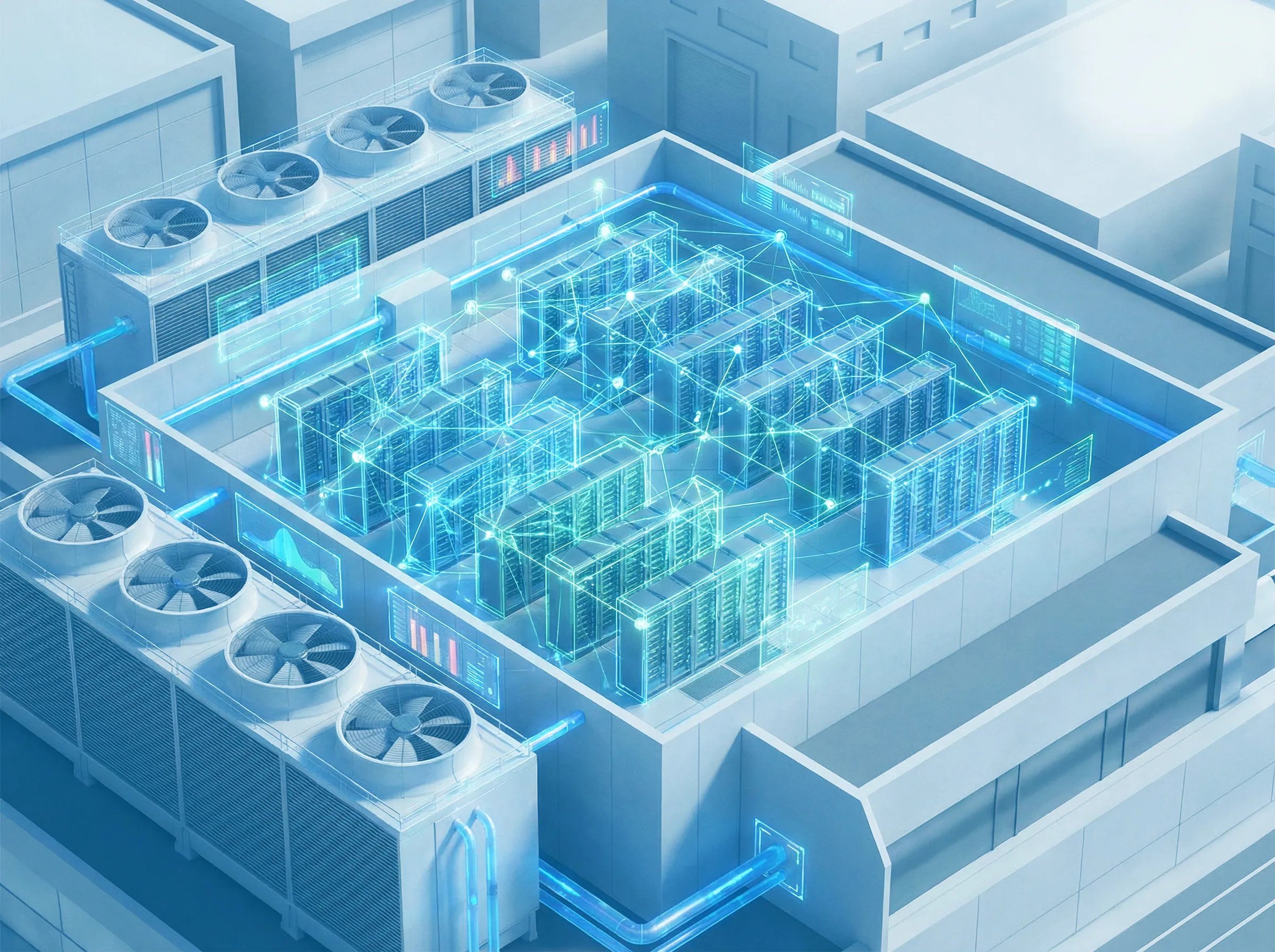Book Demo
Book Demo

At its Rhine-Ruhr 1 site in Bonn, Germany, NTT Global Data Centers implemented AI-powered cooling optimization using the etaONE® platform from etalytics. The result: a nearly 20% reduction in energy consumption for the liquid cooling system, without compromising operational reliability. The pilot lays the foundation for wider rollout across NTT’s data center portfolio.
This success story is based on the detailed project account published by NTT Global Data Centers.
Read the original NTT Global Data Centers blog post here.
Inline with its sustainability targets – net-zero emissions across all data centers by 2030 – NTT Global Data Centers piloted an AI-based energy optimization project at Rhine-Ruhr 1. The goal: reduce cooling system energy use without compromising operational safety or uptime. A feasibility study on historical data revealed clear energy savings potential in the water-glycol circuit.
The etalytics platform uses a hybrid AI approach: combining machine learning trained on historical data with physical models to simulate and optimize cooling system performance in real time.
A digital twin of the cooling circuit was developed, incorporating core components such as pumps, chillers and heat exchangers. The model enabled the simulation of annual operation in five-minute intervals, delivering highly accurate forecasts even outside the original data range.
Implementation followed a structured, collaborative integration process. etalytics worked closely with NTT’s building management and HVAC partners to adapt control logic and define responsibilities. The optimization server was deployed on-premise, ensuring full local control.
Based on these strong early results, NTT Global Data Centers plans to extend the solution to additional sites. Each new deployment will be tailored to the specific system layout and data profile, ensuring high model accuracy.
NTT Global Data Centers and etalytics are also collaborating on a joint research initiative funded by the German Federal Ministry for Economic Affairs and Climate Action. This project explores further optimization potential through AI-based waste-heat recovery, a key enabler for sustainable data center operation in the future.